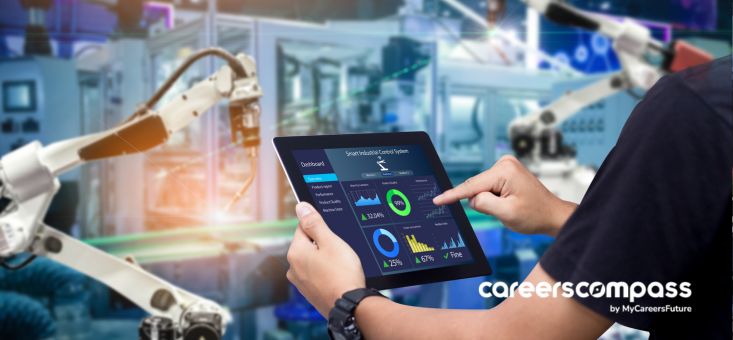Singapore’s manufacturing industry today presents many exciting opportunities, with locally-based companies working alongside public research institutes such as SIMTech, trade associations, and academia partnering for sustainable long-term growth.
As it stands, Singapore’s manufacturing industry contributes to about one-fifth, or roughly S$106bn, of our total GDP. The sector also hires about 450,000 workers or around 12% of Singapore’s workforce. Needless to say, manufacturing is an integral pillar of Singapore’s economy.
However, global headwinds remain a concern, according to Minister for Manpower Tan See Leng, who spoke at an anniversary dinner for A*STAR’s Singapore Institute of Manufacturing Technology in September 2023.
“Looking around us, today’s external operating environment remains volatile and uncertain. Supply chain disruptions, geopolitical tensions, persistent inflation, and economic slowdowns are impacting sectors such as electronics and precision engineering”, he revealed.
As such, Singapore’s workforce will also need to be upskilled to ensure that our skillsets remain relevant, and the government is committed to supporting this, Minister Tan added.
“For instance, the Knowledge Transfer Office, spanning A*STAR’s SIMTech and Advanced Remanufacturing and Technology Centre (ARTC), is partnering with SkillsFuture Singapore and other leading organisations like NUS-ISS.
“They are working together to curate training programmes that help to bolster the competitiveness and capabilities of our workforce against the backdrop of a dynamic manufacturing landscape.”
Interested in learning more about these programmes and what they cover? Learn more below.
Find your next job on MyCareersFuture. We have over 100,000 job opportunities daily for you.
What are these programmes specifically, and in a nutshell, what do they cover topically?
SIMTech has a joint collaboration with NUS ISS, training cutting-edge cloud-native technology for manufacturing sectors, including architecting manufacturing services such as cloud-native solutions, containerisation, and DevSecOps. They include programmes such as:
Cloud Native Solution Design for Smart Manufacturing Services
This program focuses on designing manufacturing solutions in cloud-native ways, including architecture design, microservices, containerisation, scalability, and reliability for efficient and resilient services.
Containers for Deploying and Scaling Smart Manufacturing Services
This program delves into containerisation technologies like Docker and Kubernetes and their application in efficiently deploying and scaling manufacturing services, streamlining deployment, and resource management.
DevSecOps Engineering and Automation for Smart Manufacturing Services
This program integrates security (DevSecOps) into manufacturing service development. It covers the automation of development pipelines, security practices, compliance, and collaboration among teams to ensure secure, efficient, and compliant manufacturing operations.
How are these programmes of value to those working in the manufacturing sector currently?
These training programmes are tailored for professionals working in Industry 4.0 who want to adopt modern manufacturing trends like cloud-native design, containerisation, and DevSecOps practices to enhance the efficiency, scalability, and security of their manufacturing software services.
Each program addresses a specific aspect of this transformation, from design to deployment and security, to optimise their manufacturing services.
For those looking to reskill or upskill to make a career change to the manufacturing industry, how do these programmes help?
These programs provide a pathway for career changers to acquire the skills and knowledge needed to transition successfully into the smart manufacturing industry, addressing critical aspects of modern IT solutions, such as scalable and cost-effective cloud solutions and secure application deployment with automation and efficiency.
What are the jobs and career outlook for Singaporeans currently in, or interested in joining, Singapore’s manufacturing industry, and which subsectors or particular roles would be in demand or growing in the future to take note of?
Singapore’s manufacturing industry is quickly evolving, with a focus on technology-driven transformation. The expected growing areas are:
- Advanced Autonomous Manufacturing, including industrial Internet of Things (IoT), Automation, Robotics, and (Artificial Intelligence) AI application development.
- Net Zero Manufacturing, with a focus on Environmental Sustainability and Energy Efficiency.
- Resilient Value chain, which helps organisations adapt and recover from disruptions.
- Skill in Emerging Technologies across various manufacturing sectors, including Cloud, Cybersecurity and Data Privacy.















